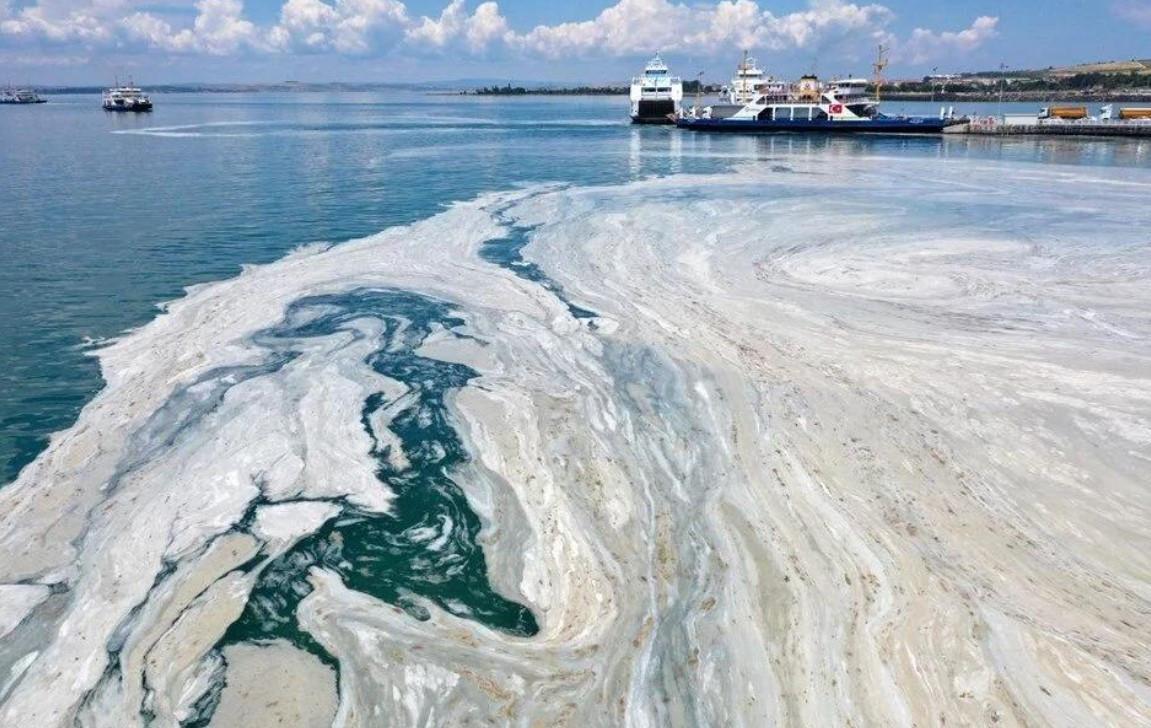
With the effects of drought and the increase in sea water temperatures, there might be a new mucilage formation in the Marmara Sea, an expert has warned.
Prof. Dr. Mustafa Sarı, dean of the Faculty of Maritime Studies at Bandırma Onyedi Eylül University, regularly dives to examine the changes in the Marmara Sea.
While Sarı measured the temperature of the Marmara Sea as 7 degrees Celsius during his dive on March 24 last year, it was 11 degrees Celsius on March 22 this year, with an increase of a whopping 4 degrees.
Sarı stated that the conditions for the re-emergence of mucilage have been created due to drought, and that no lessons were learned from the 2021 mucilage incidence.
He added that people continue to pollute the sea in the same way in 2021, and sea surface temperatures are progressing in a similar way to that year.
Sarı noted that mucilage can occur at any time due to drought and said that imbalances in weather temperatures and the lack of precipitation greatly contributes to the formation of mucilage.
He pointed out that even though the sea surface seems free of it, the mucilage continues to maintain its effect in the sea, at depths of more than 18 meters.
He warned that the country may encounter a new mucilage incident and people need to approach it just like a natural disaster, managing its risks and taking preventative measures against it in the same way.
“We always say for mucilage since the first day we saw it, it is a disaster that is certain to happen again, but whose timing is unknown,” he said.
Prof. Dr. Hüseyin Toros, a lecturer at Istanbul Technical University Meteorological Engineering Department, said that the fact that there is rainfall across the country does not mean that there is no drought.
Toros stated that the water levels in dams in different parts of Anatolia and Türkiye, even in Istanbul, are still below what they should be.